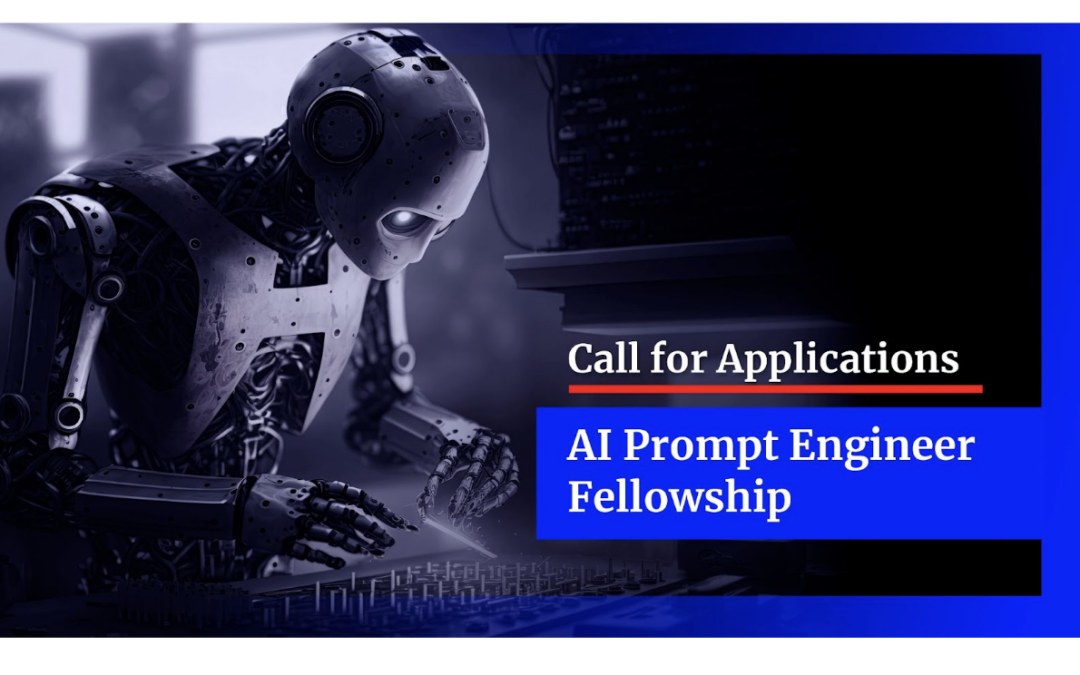Do you want to help Kenyan media experiment with AI prompts to turbocharge their journalism?
Code for Africa (CfA) is seeking three AI Prompt strategists as Innovation Fellows, to help Kenyan newsrooms experiment with practical ways to use Generative AI (GenAI) and other machine learning approaches to improve the quality and impact of their journalism.
Applicants should have proven expertise in data science, machine learning or software engineering with demonstrable experience in crafting effective AI prompts that address the inherent limitations and risks involved in using Large Language Models (LLMs) for public-facing services.
The CfA fellowships are offered in partnership with Deutsche Welle Akademie (DWA), and are open to applicants based anywhere in Anglophone Africa, with a preference for applicants currently based in Kenya.
The fellowship:
The fellowship is an initial stipend-based three-month contract, that requires a full-time commitment.
Your deliverables:
Successful candidates will be integrated, virtually, into CfA partner newsrooms to bring their technical skills to environments that typically lack specialist technology resources. The fellows will steer a series of “rapid prototype” projects at the newsrooms, in partnership either with journalists or alternatively with the business strategists to test ways that GenAI might be used to streamline editorial research or production processes or to enhance audience/publication strategies. This could include using GenAI to identify emerging news topics, or to improve research and interviewing techniques, or using GenAI to verify raw research and then using GenAI to transform the results into compelling multimedia journalistic storytelling. GenAI could also be used to help customise stories for specific audiences, or to repackage stories for particular platforms/formats.
Specific deliverables will include:
- Prompt Engineering: Design and develop prompts and templatised guidelines for managing GenAI-assisted editorial systems, newsroom resources, public journalism projects, or digital storytelling on designated topics.
- AI Support Systems: Craft technical playbooks and policy guardrails that document best practices, suggested standards, ethical frameworks and technical requirements.
- Knowledge Systems: Assist in creating learning resources to institutionalise knowledge, and share insights from the fellowship through workshops and blogging (with support from CfA).
Support for fellows:
The fellows will receive support from CfA staff technologists and media experts at CfA’s in-house TechLab software engineering team and its DataLab data science team. They will also have access to CfA’s forensic investigation experts at the ANCIR iLAB, its natural language processing (NLP) media analysts at CivicSignal, its fact-checkers at PesaCheck, and a range of other drone, sensor, or business experts in other CfA teams.
The fellows will also be supported by a dedicated ‘partner sherpa’ to help manage the relationship with the partner newsrooms.
Are you eligible?
The fellowships are intended to give established data scientists and/or machine learning technologists a chance to use their proven technical skills to develop and maintain AI-powered tools that assist journalists in research and content creation. Applicants must therefore meet the following minimum criteria:
- A strong foundation in data science and/or software engineering.
- Genuine interest in working within a newsroom environment and contributing to journalistic excellence.
Technical skills:
- Expertise in prompt engineering, particularly with AI technologies such as GPT-4 or similar.
- Proficiency in data modelling, analysis, and interpretation. Familiarity with modern software development practices and tools.
- Hands-on experience in implementing AI/Machine Learning models in real-world scenarios.
- Proficiency in Python or other relevant programming languages, experience with ML/NLP frameworks and libraries such as OpenAI, Python, LangChain, and SciPy.
Soft skills:
- Excellent communication skills, both verbal and written.
- Ability to collaborate in a multi-disciplinary team, especially with non-technical stakeholders.
- Proactive and innovative problem-solving skills.
- Adaptable and receptive to feedback.
Application Process:
The following process will apply:
- Submission: Interested candidates are required to submit an updated CV, a cover letter detailing their interests and relevant experiences, and any pertinent portfolio items or case studies.
- Review: CfA will review all applications, considering both the technical qualifications and the alignment with the fellowship’s mission.
- Interview: Shortlisted candidates will be interviewed, which might include technical assessments and discussions around potential project ideas.
- Final Selection: Successful applicants will be notified and onboarded for the fellowship.
Application Deadline:
Please submit all application materials by 30 October 2023.
To apply, complete this form.
About the Partners:
Code for Africa (CfA) is the continent’s largest network of digital democracy laboratories, with over 100 full-time data scientists, forensic researchers, technologists and digital storytellers working in support of investigative media and watchdog CSO partners in 26 African countries. CfA builds digital solutions that provide actionable information to citizens to encourage informed decisions, while also amplifying voices to strengthen civic engagement for improved public governance and evidence-driven accountability. CfA will give fellows access to support from its openAFRICA data ‘liberation’ team, the commons.AFRICA open source team, the source.AFRICA evidence research team, and a string of wider communities that CfA manages including the africanDRONE community of civic drone/mapping pioneers, the sensor.AFRICA community that uses remote sensors to monitor air/water/radiation and other environmental information, the PesaCheck fact-checking team that debunks misinformation, the iLAB forensic investigation team that tracks and exposes hate speech or other toxic content, the CivicSignal media monitoring and content analysis team, and the WanaData network of women data scientists/storytellers who liberate and amplify feminist data.
Deutsche Welle Akademie (DWA) is Deutsche Welle’s center for international media development, journalism training, and knowledge transfer. DWA works to strengthen the human right to freedom of expression. Together with their partners, they play a leading role in the development of free media systems, creating access to information, setting standards for education, and independent journalism.
